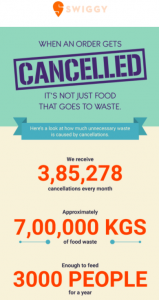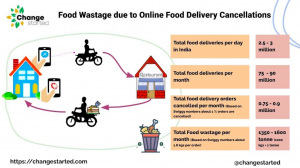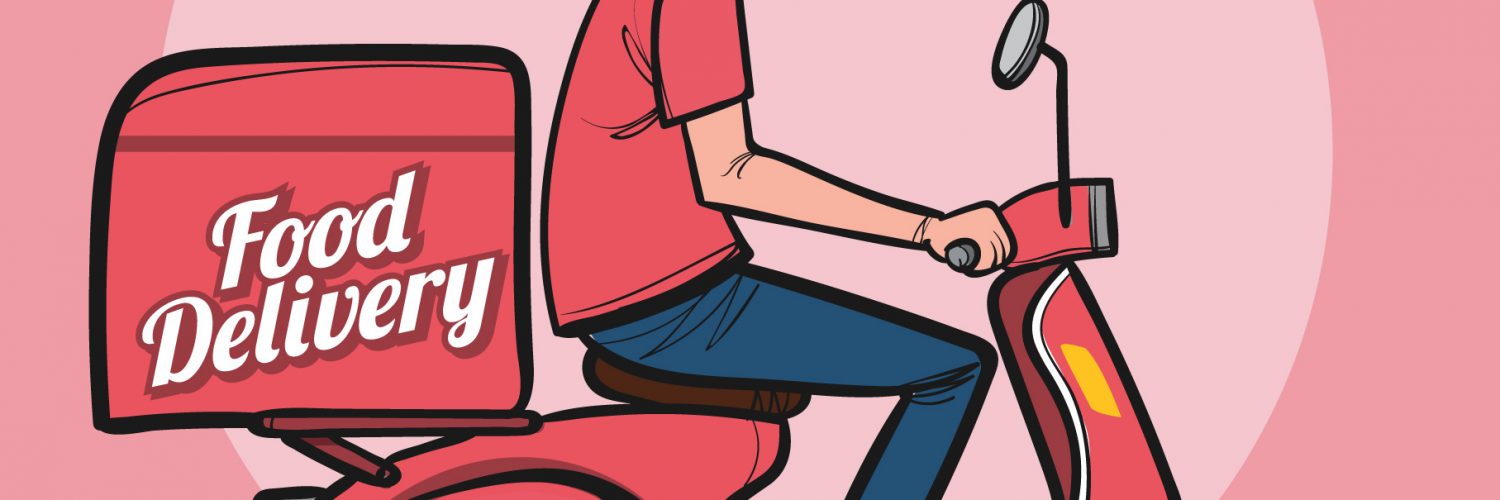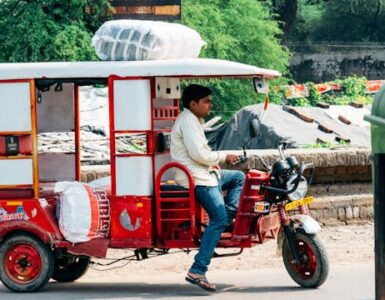Food wastage is rampant in India. A country where millions of people sleep hungry daily while there are thousands who throw away unconsumed food without blinking an eyelid.
According to the CSR Journal, nearly 40% of the food produced in India is wasted. This is a staggering amount of food, equivalent to the food consumed by the United Kingdom. According to the Ministry of Agriculture, the estimated cost of the wastage is almost Rs 1 lakh crore annually.
Alarming Statistics
- As per the 2017 Global Hunger Index (GHI) Report, published by the International Food Policy Research Institute (IFPRI), India ranks 100 out of 119 countries – the lower the rank more the number of hungry people in the country.
- Nearly 20 crore Indians sleep hungry every night.
- Nearly 3,000 children in India die every day due to malnutrition.
The Food Delivery apps – Swiggy and Zomato of India
The food and beverage industry saw a revolution a few years back when Swiggy and Zomato started onboarding restaurants and cafes around the country on a single platform – to make food delivery easy and convenient for the consumers.
Swiggy was launched in 2014 from the garden city of India, Bengaluru. Gurgaon-based Zomato which started in 2008 as a platform that hosted reviews of food connoisseurs, decided to venture into food delivery in 2015.
Over the years, riding on the discounts and great customer experience, both food-tech players have seen exponential growth in India. The higher disposable income available in the hands of the younger population led to more and more ordering of food via these channels.
Towards the end of 2018, both Swiggy and Zomato entered the acclaimed unicorn startup group.
By 2019, both the companies entered a multitude of tier 2 and tier 3 cities of India. In October 2019, the sector touched milestones of close to 3 million deliveries a day with an average order value of approximately Rs 300 ($4).
Can We Talk About Food Wastage?
With such massive food ordering happening across the country, the food prepared in restaurants gets packed and then delivered to homes. Not all food gets consumed.
There is food wastage at consumer homes and then there are order cancellations. We are not even talking about the food wastage that happens in the restaurants.
Most of the time, the order cancellation means a notification going to the delivery person to not make the delivery and the customer getting a money refund. It is convenient for the user, but it did not take into account, the food which is already prepared either in the restaurant or is on its way to the consumer’s home.

Swiggy which is the leader in the market making more than 1 to 1.5 million deliveries every day, made a disclosure recently.
The company receives 3,85,278 cancellations every month and as per their estimates, it translates to approx 7,00,000 kgs of food wastage, enough to feed 3,000 people for a year.
The email sent in July 2020 showed another interesting statistic, 45,000 liters of fuel is wasted because of these cancellations.
The objective of the email was to inform the company users of the new cancellation policy. If any customer places an unintended order, they will get 1-minute to press the cancel button.
We couldn’t find similar information from Zomato or other food delivery platforms, considering their numbers will also be similar we did some quick math. Extrapolating the numbers for the industry, about 1350 – 1600 tonnes of food is wasted in India due to online food delivery cancellations.

How are Swiggy and Zomato Tackling the Food Wastage problem?
Swiggy has a clear provision for cancellations, which is the one-minute cancellation option – the consumer can review the order, check the address – and if they want to cancel the order they can do it within 1 minute without any fees. If the 1-minute time lapses, the customer will pay the full order amount.
Will this really solve the problem? Not sure, it might prevent some customers to not order something which they do not intend to eat.
Zomato is extremely ambiguous with their cancellation policy, with no information available on their app or website. On checking with their customer support, we were told that – “Sometimes the cancellation charges are being charged or sometimes the whole order value is charged as penalty charges. We cannot commit any charge in advance.”
In July 2019, Zomato acquired Feeding India, a not-for-profit organization spread in over 100 cities in India, with a vision to “Make India Hunger Free”. The volunteer-based organization aims to serve at least 100 million underprivileged people every month.
According to research reports, the food delivery market in India is set to double in the next 2-3 years, from an estimated $4 Bn in 2019 to about $8 Bn by 2022. Hence it becomes pertinent that the two biggest food-delivery startups in India take some concrete actions to prevent food wastage.






Add comment